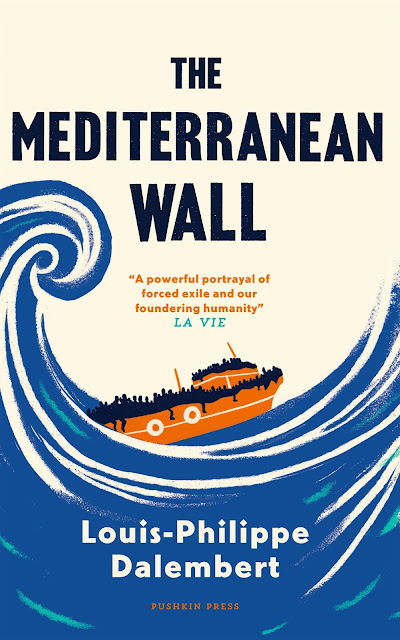Books for Refugee Week
During Refugee Week, we are encouraged to read a book about the refugee experience and pass it on. Here are my recommendations.
IT’S hard to believe that over 100 million people globally are displaced. While the tragic war in Ukraine has undoubtedly contributed to this figure, it’s worth considering some of the other reasons people leave their homelands, and the challenges they face seeking protection in Fortress Europe. Refugee Week celebrates the resilience of refugees and asylum seekers. Its “simple acts” initiative encourages everyone to read a book about the refugee experience and pass it on. The books below explore the plight of various refugees and their perilous journeys in search of safety.
• In The Naked Don’t Fear the Water (Fitzcarraldo Editions) Canadian journalist Matthieu Aikins accompanied his Afghan friend Omar on his harrowing journey to Europe. Omar’s life was threatened after having worked for the Americans and Canadians as a driver and interpreter. When the US Special Immigrant Visa program turned him down, Omar was forced to employ a smuggler. Aikins documented their experiences and spent five years compiling this powerful account. Throughout Aikins explores the inequities that cause movement between countries and the West’s short-sighted political decisions that have contributed to an unimaginable loss of life among those seeking sanctuary.
• In 2014, a dilapidated trawler with over 700 refugees ran into trouble on the coast of Lampedusa and was rescued by a Danish oil tanker. Haitian writer Louis-Philippe Dalembert based his novel The Mediterranean Wall (Pushkin Press), translated by Marjolijn de Jager, on this tragedy. It follows the traumatic journeys of three women: Dima is fleeing war in Syria, Shoshana is escaping the worst effects of climate change in Nigeria and Semhar has left enforced military service in Eritrea. Their lives overlap on a boat bound for Lampedusa. Dalembert captures the casual violence of the smugglers who treat their cargo like cattle, not caring whether they live or die. In Libya, Shoshana and Semhar endure appalling conditions detained in a hangar. Many of the women are repeatedly raped or forced to work like slaves in the homes of wealthy Libyans. Several people just disappear. After they “pay” for passage to Italy, Shoshana and Semhar witness fellow travellers being slaughtered for daring to request humane conditions while others perish by jumping into the sea just as they are about to be rescued. Dalembert offers heart-breaking insights into the various hells endured by desperate people and what compels them to make the dangerous voyage across the Mediterranean.
• Sadly, My Fourth Time, We Drowned (4th Estate) by journalist Sally Hayden demonstrates that little has changed in Libya. If anything, the situation has worsened. Hayden, whose reportage begins in 2018, documents the appalling treatment of refugees and migrants trafficked, tortured, incarcerated and murdered in Libyan “camps”. Her powerful book also exposes the shocking negligence of the EU agencies and NGOs and their inability to control Libyan militias systematic abuse.• All Walls Collapse (Comma Press) edited by Will Forrester and Sarah Cleave, is a poignant history of the walls that imprison people or keep them out. From the Berlin Wall to the US-Mexico border, the short stories in this collection take place across thousands of miles of fences and barriers, and explore the impact on people’s lives and communities.
• In Map of Hope and Sorrow (Footnote Press) Helen Benedict, a British-American professor, and Eyad Awwadawnan, Syrian writer and refugee, expose the conditions of the overcrowded Greek camps where desperate people are confined and denied their legal rights under the watch of the West.
From July to November 2021, Little Amal, a giant puppet travelled 8,000km from the Syrian-Turkey border along the refugee route to Europe. Her “walk” was the world’s largest live performance and promoted empathy and compassion among the many communities she passed through. The Long Walk with Little Amal (Mountain Leopard Press) includes Andre Liohn’s photographs of the journey and essays from Samar Yazbek, Burhan Sonmez and Cressida Cowell among others.


